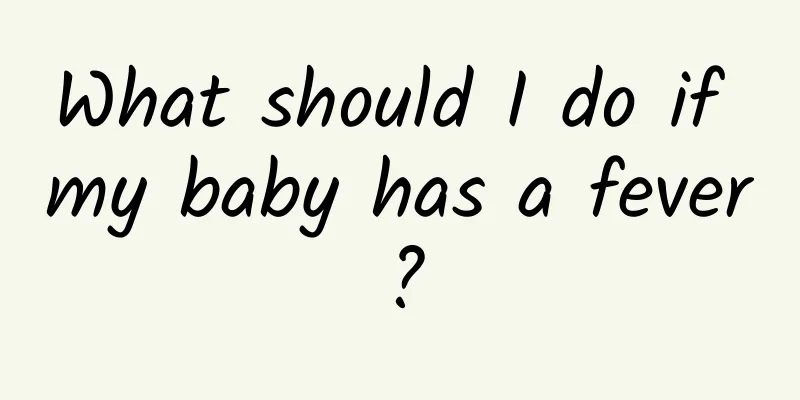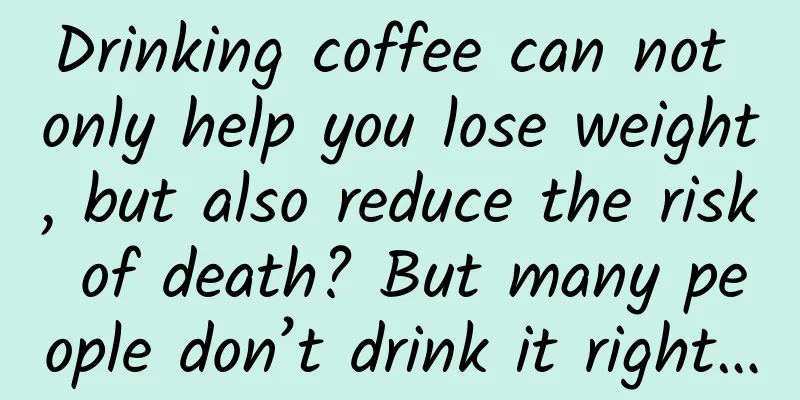What should I do if my baby has a fever?

|
Author: Liu Yulin, deputy chief nurse, Children's Hospital Affiliated to Chongqing Medical University Reviewer: Luo Zhengxiu, Chief Physician, Children's Hospital Affiliated to Chongqing Medical University Today, let's talk about the issue of fever. "Fever" is what we commonly call "fever". When a child has a fever, how do you deal with it as a parent? Do you cover the child tightly with a blanket to let him sweat? Or put a fever-reducing patch on the child to let him cool down? Or wipe the child's body with alcohol? Or ask the doctor to give the child a fever-reducing injection immediately, for fear that the child's brain will be damaged? Which are right and which are wrong? Does the child have a fever? Under the control of the thermoregulatory center, the body's heat production and heat dissipation process maintains a dynamic balance. When the body is under the action of a heat source or the thermoregulatory center has a dysfunction, the heat production process increases while the heat dissipation cannot increase or decreases, and the body temperature exceeds the normal range, it is called a fever. Generally speaking, a rectal temperature ≥38°C, an axillary temperature ≥37.5°C, or an oral temperature ≥37.3°C is considered a fever. Fever degree (axillary) |||| Why do I have a fever? Infection is the most common cause of fever in children, the most common of which is respiratory tract infection. Fever can also be seen in connective tissue diseases, tumor diseases, drug fever, functional fever, etc. What impact does fever have on children’s bodies? Fever can be both beneficial and harmful to the human body. Advantages: Fever is both a physiological change caused by pathogenic factors and a protective physiological response of the human body against pathogenic factors, which can enhance the body's immune function. Harmful: When you have a fever, you will feel general discomfort, which may affect your eating, activities, and sleep, and may also cause symptoms such as dizziness and convulsions. What should I do if my baby has a fever? First measure the body temperature and determine the temperature. 1. When the body temperature rises, you may experience chills and shivering, so you should keep warm appropriately. 2. Take correct and reasonable cooling measures in a timely manner during the fever period. 3. When the body temperature is less than 38.5℃, physical cooling should be chosen. (1) Drink plenty of warm water, vegetable juice and fruit juice. Do not give the child ice water. (2) Lower the ambient temperature but avoid direct wind. (3) Loosen clothing and bedding. (4) Keep the indoor air circulating. (5) Use physical cooling patches appropriately. Warm water, ice water, or alcohol baths are not recommended. (6) Some children who have obvious discomfort due to fever, such as crying, restlessness, and poor mental state, can also use antipyretics. Copyright images are not authorized for reproduction
(1) Acetaminophen and ibuprofen are antipyretic drugs for children recommended by the World Health Organization. Their overall safety is reliable and they should be taken as directed by a doctor. (2) The combined or alternating use of acetaminophen and ibuprofen is not recommended. (3) Antipyretics can both lower body temperature and relieve the discomfort symptoms caused by fever. (4) Remeasure body temperature 0.5 to 1 hour after cooling treatment. (5) Children with a history of febrile seizures need to actively reduce fever to avoid convulsions. Antipyretic drugs can be used if the body temperature exceeds 38°C.
Tips In addition to the above situations, if you are unsure of the child's condition or cannot handle it yourself, you need to seek medical attention in time and ask a professional doctor to examine and treat the child. Fever is a common symptom of illness in children. Every parent should know the correct way to deal with fever, not be superstitious, not avoid medical treatment, and not be anxious. I hope that all children can grow up healthily and let illness be "fever" and pass away quickly. |
<<: Can girls who “love to laugh” also suffer from depression?
>>: China's Android app download rankings in the 25th week of 2012
Recommend
What is the cause of brown blood in the third and a half months of pregnancy?
Pregnancy is a very happy thing for women, but th...
The benefits of calcium tablets for women
Many people believe that only the elderly and chi...
Is it inflammation if the female private parts smell bad?
The female private parts are an area that require...
When is the best time for a normal abortion?
If the pregnant woman's physical condition or...
Will taking ceftriaxone delay menstruation?
If you have symptoms such as fever, you should go...
What is the reason for a three-day delay in menstruation?
Sometimes women's menstruation may be delayed...
What to do if your lower body itches after removing the ring
Most women will experience vulvar itching after r...
What to do if a woman's vagina is dry
What should women do if they have vaginal dryness...
World Allergy Day丨Bad mood can also cause allergies? Beware of the "number one disease" in dermatology
Today is World Allergy Day Allergic disease is an...
What's the sour taste down there on girls?
Girls may have many symptoms in their lower body,...
Does Peanut Pig Trotter Soup Promote Milk Production?
There is a popular folk practice of giving peanut...
Does anger have a big impact on breasts?
Everyone has their own temper, but we should lear...
Is it necessary to use Chinese medicine fumigation after childbirth? Who is suitable for Chinese medicine fumigation?
Fumigation is a commonly used treatment method in...
What to do if the endometrium shows hyperplasia
Gynecological diseases are particularly harmful t...









